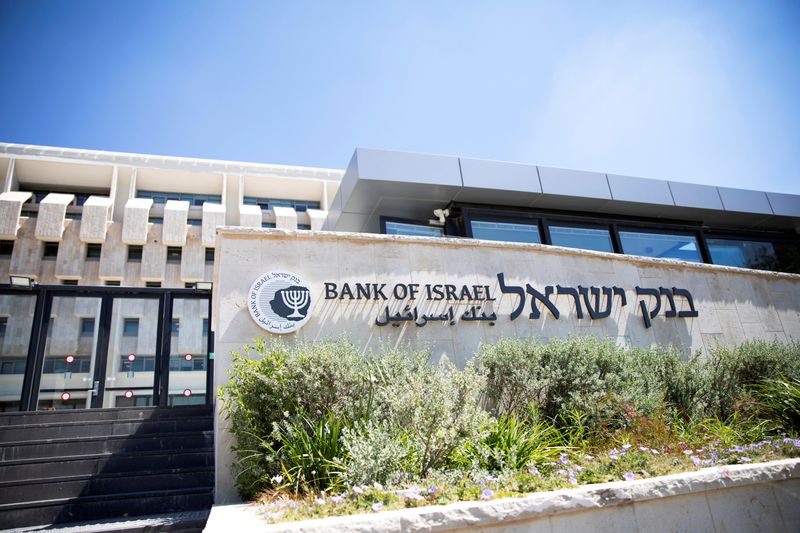By Steven Scheer and Ari Rabinovitch
JERUSALEM (Reuters) - The Bank of Israel on Monday raised its benchmark interest rate by half a point and said it believes more hikes were needed to cool inflation, still running above 5%, while the economy remains strong and the labour market is tight.
The move was expected to be one of the last in an aggressive monetary policy tightening cycle that began in April when the key rate stood at 0.1%. It is now at an 11-year high of 3.25% after Monday's half-point rise that followed successive hikes of three-quarters of a point in August and October.
At its prior meeting on Oct 3, the bank's own staff had forecast the rate reaching 3.5% next year and Governor Amir Yaron said that he saw rates peaking at "3 plus percent" in a signal the tightening cycle was close to running its course.
But the process of front loading rate hikes, Deputy Governor Andrew Abir clarified in an interview with Reuters, was not finished.
The central bank, he said, remained uncomfortable with price pressures and preferred "to err on the side of making sure we get inflation down" with its monetary policy.
"It's pretty likely that we will need to raise interest rates higher than what the research department had in that (October) forecast," Abir said. "We don't see this as the end of the process."
Economists now expect the key rate to hit as much as 4% in the first quarter of 2023.
"There will be pain now but it's better to take that pain right at the beginning rather than let inflation get out of control and ... rates can get to 6-7%," Abir said.
Israel's annual inflation rate rose to 5.1% in October from 4.6% in September and was just shy of a 14-year high of 5.2% in July. Yet the central bank noted inflation expectations in a year's time were within the government's target range of 1-3%.
Inflation was likely to stay above 5% the next few months before the rate starts to ease and reach the target in late in 2023, Abir said.
At the same time, Israel's economy grew an annualised 2.1% in the third quarter from the second quarter, slower than a 7.3% pace in the prior three months. On Monday, official data showed Israel's jobless rate rose to 4.3% in October from 3.9% in September.
The Bank of Israel expects the economy to grow 6% in 2022, slowing to 3% growth next year.

Abir downplayed the third-quarter growth numbers, saying he looks at multiple readings. "This is far from an economy that's going into recession," he said.
He noted that while there has been a slowdown in hiring in the tech sector, a key growth engine, there wasn't a big rise in unemployment.